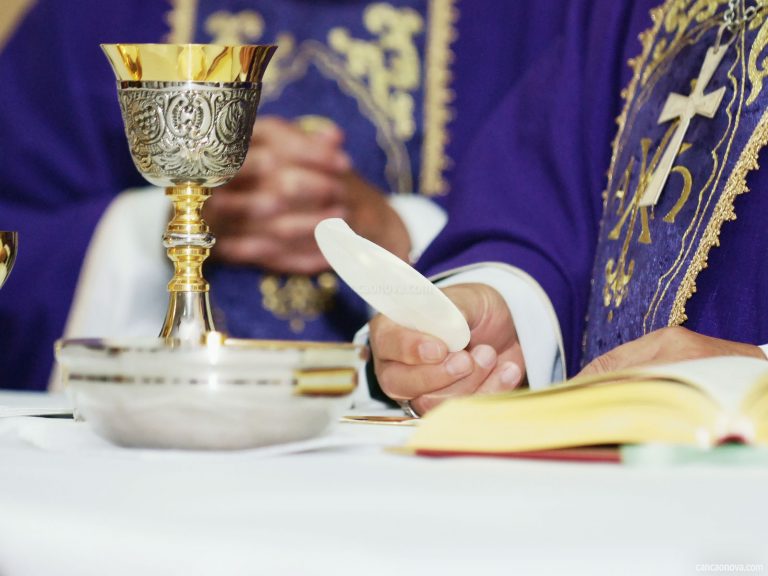 The Eucharist protects us in difficulties
The Eucharist protects us in difficulties
In the Blessed Sacrament of the Eucharist, the Body and Blood, the Soul and the Divinity of Our Lord Jesus Christ are truly, truly and substantially contained; therefore, the whole Christ (DS 1651).
I would like to begin my position with this dogmatic definition of the Church, which is linked to the desire for continued permanence of Jesus Christ with our fragility. The sacrifice of the cross is the sacrifice of the altar: the celebration of the Mass is as valuable as the death of Christ on the Cross. It is the greatest contact with God that we can have in this life. The sacrament of the Eucharist is the culmination of the whole Christian life. It is the proof that the Father loves us and will never abandon us. It is the concrete and mysterious gesture of His love for us.
Jesus continues to perform, in the midst of His people – a new people of the new covenant – the same miracles He performed through the Eucharist. We have this gift of greater importance in our life. In each celebration, Jesus uses the fragility of the priest ordained to be with us and so that we can share Him.
The world has to be better from our Eucharistic experience
The world would be better if Christians who already receive Jesus took this reality seriously: we become the living extension of the living Christ we celebrate. The world has to be better from our Eucharistic experience. The Eucharist protects us in difficulties, in the struggle for purity, in the fight against vices and, above all, increases in us faith, hope and charity. The Eucharist is the health of soul and body, remedy for all spiritual sicknesses.
At the moment the priest utters the words of the Consecration, Jesus is present, He is alive to deliver us from all evils and to help us, so that our life may be associated with the will of God. For this reason, we must always be prepared to receive it with all possible love and dignity. The preparation for receiving this sacrament must be done through frequent Reconciliation, because this sacrament is linked to the Eucharist as a way of being totally available to the love of God.
Adoration of the Blessed Sacrament is a gesture that fills us with graces and can be a means of deep conversion to know where we should improve in our life. This practice should happen in all churches throughout the world, for it is a source of grace. When done with devotion, plenary indulgence (for a minimum of thirty minutes) can be achieved in favor of us or a person who is in purgatory with the desire to reach it, and with prayers by the Holy Father the Pope.
We, in fact, are too limited to understand this mystery, we must rely on the Word of the Lord, which is infallible, it is the Holy Spirit who acts in favor of our limitations. The Eucharist is linked to the Word of God, and one consolidates the other in the pursuit of perfection (Mt 26, 26-29, Mk 14, 22-25, Lk 22, 19-20, Jn 6:22, 1Cor 11, 23- 29).
May the peace of Christ and the protection of Mary be with you all.
Friar Giribone, Founder of the Missionary Work of the Virgen do Carmo Peregrina – Rio Grande, Rio Grande do Sul, Brazil

